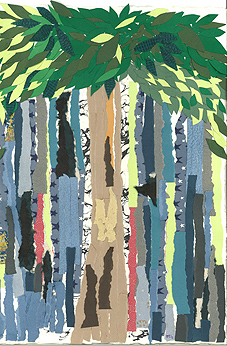Reframing Colonialism and Modernity: An Endeavour through Sociology and Literature
Gurminder K. Bhambra
The claims that Mohanty and the other essayists are making, however, go beyond these arguments while also contributing to and building on them. The essays in the volume seek to demonstrate how values that have come to be seen as intimately tied to the emergence of a specific form of capitalist modernity in the West were also articulated in other geographic and historical contexts – that is, in geographic and historical contexts independent of European contact. While recent scholarship on sociological understandings of modernity has also begun to counter the dominant view that it originated in Europe and then was disseminated around the globe, it still often maintains a Eurocentred account of its initial emergence. The dominant view of the 1960s defined by modernization theory was superseded at the end of the twentieth century by that of multiple modernities, and this itself is beginning to give way to postcolonial and decolonial understandings of modernity, understandings that seek to establish the different sources and roots of a variety of what are understood to be indigenous modernities. The shift to the conceptual language of alternative modernities, then, reflects unease with the idea of a singular, uniform trajectory applied to the current diversity of contemporary societies as well as a concern to recover silenced histories from other places pertaining to the modern. Mohanty’s edited volume is a significant contribution to this endeavour. To take one example from the volume: the emergence of the modern subject, both in literature and in history, is the focus of Tilottoma Misra’s problematising of the easy association of modernity with the notion of being progressive and tradition with being retrogressive. She contests the idea that a modern historical consciousness within India was something that came in the wake of British colonialism and argues instead that elements of modernity were present in precolonial Assamese literature and that these elements remained providing a crucial alternate locus for thinking and acting during the colonial period (2011: 115). Misra elaborates on this thesis by examining two literary texts from Orissa and Assam, discussing the different modes of social criticism used within them in their contestation of colonialism. Other chapters within the volume also develop the theme of elaborating an ’indigenous’ modernity as distinct from the colonial variety more usually discussed. While such critiques are becoming more pronounced, they were not previously absent. They are to be found in the literary endeavours of 19th century Indian writers such as Senapati, Barua, and Apparao, as detailed in the volume under discussion, and were then also to be found in subsequent social scientific discourses. Pages: 1 2 3 4 |
Essays in this Forum
Rethinking the Global South
by Mukoma Wa Ngugi From Indian Literature to World Literature: A Conversation with Satya P. Mohanty by Rashmi Dube Bhatnagar and Rajender Kaur Asia in My Life by Ngugi wa Thiong'o The Global South and Cultural Struggles: On the Afro-Asian People’s Solidarity Organization by Duncan Mceachern Yoon The Fault Lines of Hindi and Urdu by Sanjay Kumar Reframing Colonialism and Modernity: An Endeavour through Sociology and Literature by Gurminder K. Bhambra Varieties of Cultural Chauvinism and the Relevance of Comparative Studies by Tilottoma Misra Literature to Combat Cultural Chauvinism: A Response by Shivani Jha Is There an Indian Way of Thinking about Comparative Literature? by E. V. Ramakrishnan Modernity and Public Sphere in Vernacular by Purushottam Agrawal West Indian Writers and Cultural Chauvinism by Jerome Teelucksingh Oral Knowledge in Berber Women’s Expressions of the Sacred by Fatima Sadiki |
